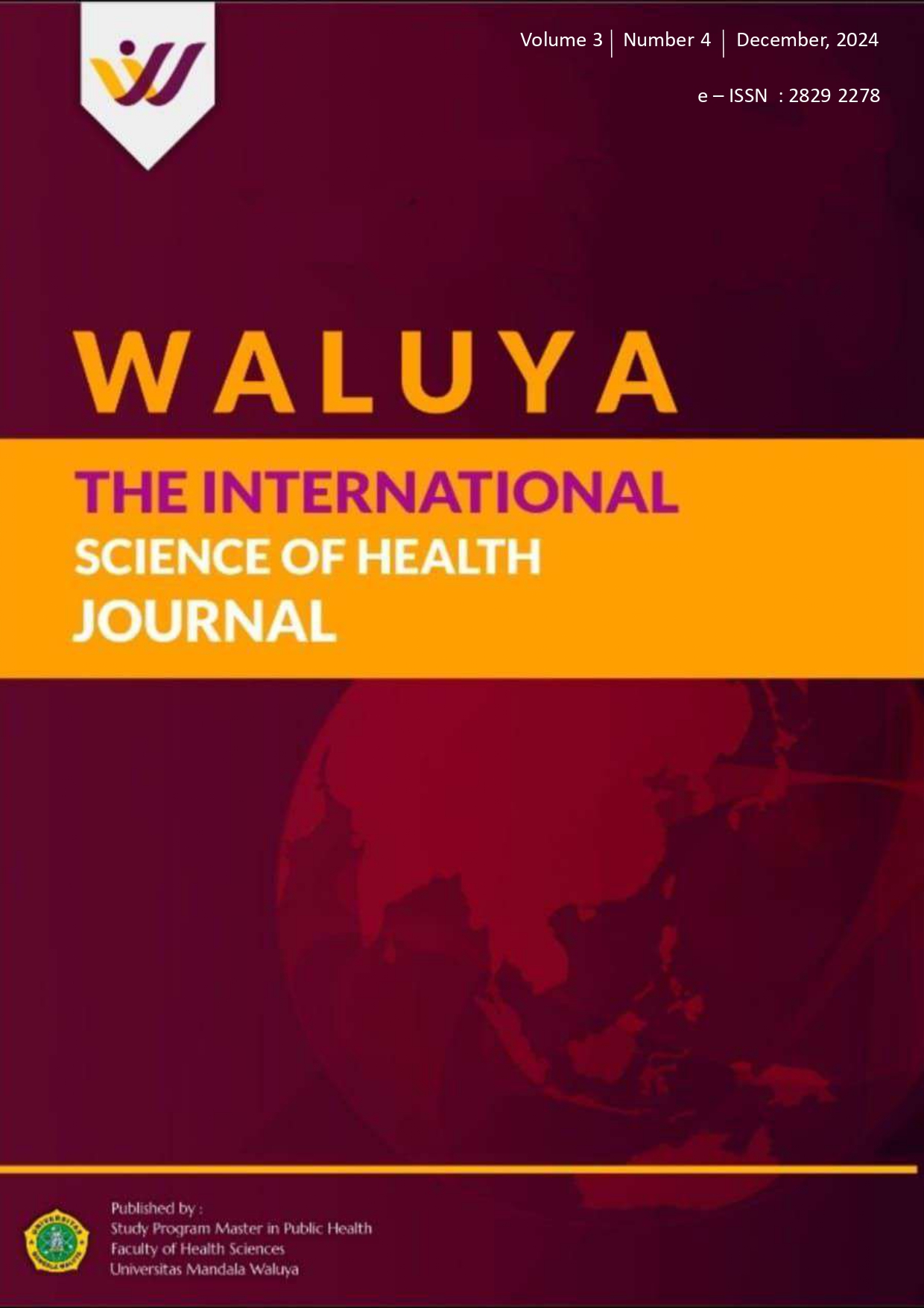Analysis of Informational Support and Appreciation for People Living with People with HIV/AIDS as a Result of Lost Follow Up of HIV/AIDS Patients in West Muna Regency
DOI:
https://doi.org/10.54883/wzrv8421Keywords:
Instrumental, Informational, Lost Follow UpAbstract
Introduction:Comprehensive services are needed to resolve the complex problem of PLWHA infection. One of the comprehensive services can be implemented with the help of people or family members who live with PLWHA and provide attention to them. Efforts that need to be made to slow down the incidence of opportunistic infections in HIV clients include reducing the incidence of lost to follow up. Until now, there has been no data related to the relationship between PLWHA (People Living with PLWHA) and the incidence of lost to follow up in HIV patients in West Muna Regency.
Method:Quantitative research using Case Control Study design, Population is all HIV/AIDS patients registered in the Disease Control Division of West Muna Regency as many as 38 people. Case samples are 11 people and Control Samples are 11 people.
Result:Instrumental support is significantly related to the incidence of Lost to Follow Up in HIV/AIDS patients with a p value = 0.008 (<0.05) and informational support is significantly related to the incidence of Lost to Follow Up in HIV/AIDS patients with a p value = 0.03 (<0.05).
Conclusion: The absence of instrumental and informational support from OHIDHA will increase the risk of Lost to Follow Up for HIV/AIDS patients, whereas HIV/AIDS patients who receive instrumental and informational support from OHIDHA will reduce the incidence of Lost to Follow Up.
Downloads
Published
Issue
Section
License
Copyright (c) 2024 Waluya The International Science of Health Journal

This work is licensed under a Creative Commons Attribution 4.0 International License.







